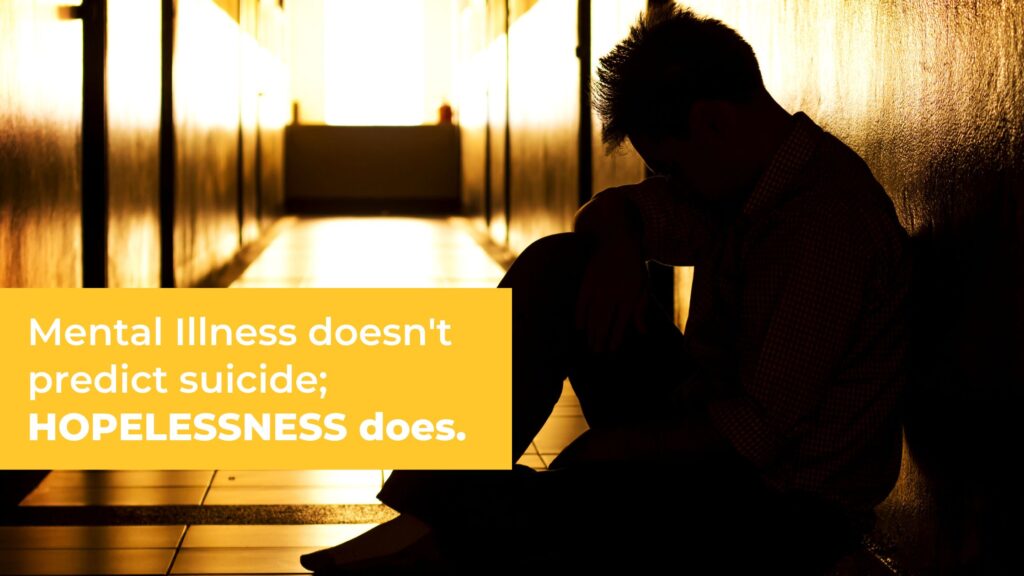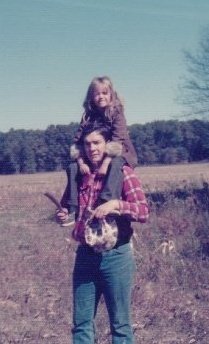Disclaimer: Content is created by iFred’s team of editors. When you buy through links on our site, we may earn a commission.
The death of Bed Bath & Beyond’s CFO,Gustavo Arnal, hits far too close to home for me. He was a father of two girls, a financial executive, and a husband. No matter what he faced in his profession, he was loved and respected by many. My heart literally breaks thinking about the long road that his family and friends, especially his daughters, have ahead.
It is astounding to me that we still aren’t talking about the real cause of death. The single consistent predictor of suicide is not mental health; It is hopelessness.

Hopelessness is the primary symptom of depression and anxiety, and a key predictor of weapon-carrying on school property and other violent behaviors, yet we don’t teach people what hopelessness is or how to manage it. Suicide prevention is impossible unless we manage the underlying hopelessness.
The reason it is nearly impossible to predict who dies by suicide is that we all experience hopelessness at different points throughout our lives. However, rather than being taught how to identify the feeling of despair and sense of helplessness inherent in hopelessness, we are frequently taught to repress our feelings or are told that we have a sickness. Yet in reality, we all have the potential to move from hopelessness to hope; some of us are just more equipped to do so.
Luckily, it doesn’t have to be that way. Hope is a teachable skill. In honor of National Suicide Prevention Week, and in light of Gustavo Arnal’s tragic death, we need to start talking about how to proactively manage hopelessness and activate hope.
We teach diabetics to manage blood sugar and those at risk of heart disease to watch their cholesterol, yet when we talk about suicide prevention, we focus on phone numbers and restricting access to means.
According to the CDC, suicide is the leading cause of death in the United States, with 45,979 deaths in 2020. That equates to one death every 11 minutes. Additionally, in 2020, an estimated 12.2 million American adults seriously thought about suicide, 3.2 million planned a suicide attempt, and 1.2 million attempted suicide. Suicide is the second leading cause of death for people ages 10-14 and 25-34.
I read a story about survivors who had attempted suicide by jumping off bridges and the first thing they said they thought after jumping was, “I wish I hadn’t done this.” I believe it. We, by nature, do not want to die. We want our emotional despair and motivational helplessness, the two ingredients of hopelessness, to end. Regardless of what causes our hopelessness- a break-up, financial loss, mistake, failure, health issue, job loss, or loss of a loved one- there is always a way to work on despair and helplessness and return to hope.
Every day, I experience an even greater sense of urgency to share the impact of hope with the public. It is heartbreaking to know that so many of these mass shootings, death by addiction, and suicides are preventable through teaching the “how-to” of hope. I think of Gustavo’s family at home, of his children who will grow up without a dad, and my heart breaks. I know that I would give anything to have my own father back. Anything.
It is up to each and every one of us to do our part to get the word out. While suicide hotlines are incredibly important for people in times of crisis, they do not truly prevent suicide, as they do not address the root cause of suicide: hopelessness.
My initial idea of rebranding depression turned into teaching the “how-to” of hope around the world, as I believe it is the one thing we can do to eradicate suicide. It has been a long journey for me, and one that is nowhere near complete. I’m grateful to be launching the Second Edition of The Biggest Little Book About Hope, which shares exactly how I have activated hope in my own life through the creation of the first-ever global evidence-based program teaching hope, called Hopeful Minds, our recent launch of Hopeful Cities, the creation of Hopeful Mindsets on the College Campus, and The Hope Matrix Podcast.
Today, as I launch the Second Edition of The Biggest Little Book About Hope, I think about Gustavo’s daughters, his wife, and the impact this will have on them for the rest of their lives. It makes me wish I had gotten this message out sooner so that I didn’t have to see another family experience the same loss I experienced when I lost my own father.
I know my dad would be here today if I’d been able to teach him what I know about managing hopelessness and activating hope. I save myself every single day. It isn’t easy, yet it is possible and transformative.
I was not born hopeful; it is a skill I had to learn and practice and grow. Hopelessness is normal and possible to overcome. We just have to learn how to manage it and how to use the Five Keys to SHINE for Hope. I ask you all to join me in doing so.
Learn more about my journey and work by ordering the Second Edition of The Biggest Little Book About Hope today.
And if you are struggling, know you are not alone. Reach out for help. Call or text 988 or text TALK to 741741.




Speak Your Mind